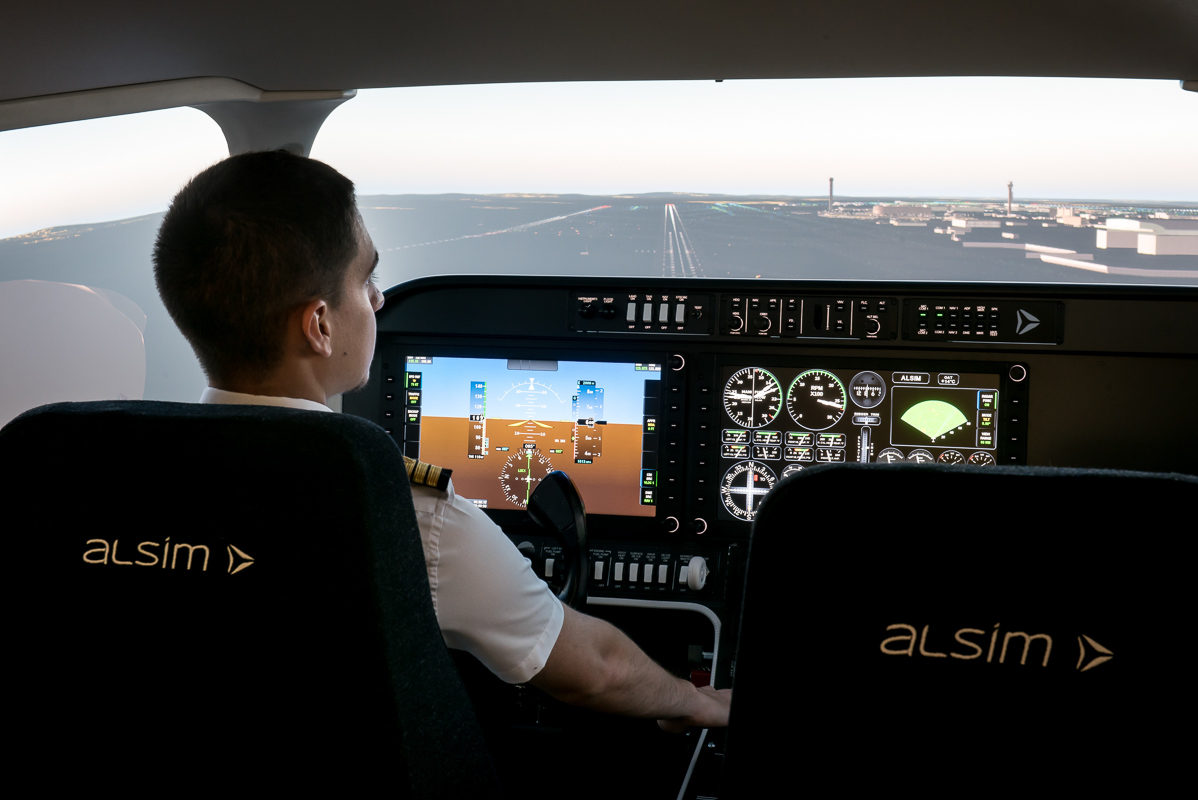ALSIM is thrilled to announce that Saskatchewan Polytechnic is upgrading its fleet with a new AL250 flight simulator. Based in Saskatoon, Saskatchewan Canada, they have been operating their AL200 simulator since 2011.
We are excited our commercial pilot students will have the opportunity to train on the new AL250 simulator. This simulator will augment the training of our students and will be used to upskill existing pilots as they add to their qualifications. We look forward to providing many years of high quality, effective training with this simulator. We are also excited to know that technical data generated by its use will support the case being made to increase the overall use of artificial intelligence in flight training.
Paul Carter
Dean
the School of Transportation at Saskatchewan Polytechnic
The AL250 simulator addresses initial phase training needs (PPL, CPL, IR/ME) and is SEP/MEP re-configurable simulator certified as an EASA FNPT II or Level 2-IPC by Transport Canada. In addition, it offers both classic and glass cockpit instrumentation for each flight model at the simple flick of a switch. This device has been extremely well received since its creation and more than 70 of these have already been installed (12 devices installed in Canada) and are in successful operation worldwide.
“The AL250 will be an integral part of Saskatchewan Polytechnic’s newly revamped Commercial Pilot diploma program. Moreover, Sask Polytech, along with other ALSIM Canadian clients like Canada Training Solutions (CTS), are helping create a cost-effective, aviation-focused Artificial Intelligence,” Dr. Scott Firsing of ALSIM’s North America office explains. “The artificial intelligence uses data from the AL250 flight simulator. This data will help improve flight training that can be approved to occur within flight simulators. This will help lower the cost and improve the effectiveness of flight simulator training. Innovations like this will help us move safely into a prosperous next chapter of commercial flight.”
“We are excited our commercial pilot students will have the opportunity to train on the new AL250 simulator,” says Paul Carter, Sask Polytech School of Transportation dean. “This simulator will augment the training of our students and will be used to upskill existing pilots as they add to their qualifications. We look forward to providing many years of high quality, effective training with this simulator. We are also excited to know that technical data generated by its use will support the case being made to increase the overall use of artificial intelligence in flight training.”
About Saskatchewan Polytechnic
Saskatchewan Polytechnic serves students through applied learning opportunities on Treaty 4 and Treaty 6 Territories and the homeland of the Métis. Learning takes place at campuses in Moose Jaw, Prince Albert, Regina and Saskatoon and through extensive distance education opportunities. Programs serve every economic and public service sector. As a polytechnic, the organization provides the depth of learning appropriate to employer and student need, including certificate, diploma and degree programs, and apprenticeship training. Saskatchewan Polytechnic engages in applied research, drawing on faculty expertise to support innovation by employers, and providing students the opportunity to develop critical thinking skills.
For more information about Saskatchewan Polytechnic, please visit: www.saskpolytech.ca/pilot.
